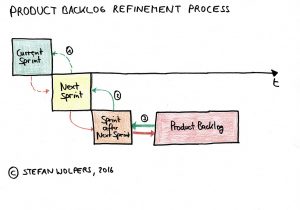Great! You have decided to be a freelancer. No more alarm clocks at awfully early hours, no boss telling you what to do, breaks whenever you want them, and ending the work day when you feel ready, right? Wrong! Waking up early is how you get the biggest amount of work done. Instead of one boss, you will have many, many temporary bosses. At least, that is what you hope for. After all, having many, many temporary bosses means you are scoring many, many jobs.
Surviving as a freelancer is not easy. You actively have to look for work yourself. If you are single, it is already hard, but if you have other people depending on you, it is even harder. That is why you need all the help seizing opportunities that you can find. I am here to tell you more about spotting and seizing opportunities as a freelancer.

The definition of an opportunity
An opportunity is anything that provides you with a chance to change your circumstances for the better. Opportunities are everywhere, but as Adam Sicinski says, “many of the opportunities we come across are actually disguised as problems or hard work. However, to the untrained eye — unable to see past the present moment — all opportunities are actually insurmountable problems that make life difficult, stressful and hard.” This is precisely the problem: seeing problems as “problems” rather than challenges that test and strengthen your determination. “The moment you shift your perspective and begin seeing your problems as challenges is the moment you begin training your brain to spot opportunities. Problems may very well be insurmountable. However, a challenge is something you can work with to better your current circumstances.” As a freelancer, it is all about your attitude whether there are opportunities for you or not.
What holds you back from seizing opportunities
As you can read in my 2015 blog Seizing Opportunities as an Entrepreneur, the biggest roadblock to accomplishing anything in life and business is not being able to recognize opportunities when they are presented. To be able to be a freelancer who sees opportunities and acts upon them, you need to overcome five main roadblocks, as listed by David Finch:
1. Fear
The biggest roadblock is the fear of the what-ifs. What if this does not work, I fail, or I lose all my money? While there is nothing wrong with wondering about the unknown, the moment you are unable to pull the trigger you have missed an opportunity to move forward.
2. Past failures
No one likes the sting of failure. It produces scars that can last a lifetime. However, if you can get past the sting, you should be able to gather information that will be helpful in your next venture.
3. Lack of awareness
This is discussed in the part about the opportunistic mindset. If you cannot see it, you will never be able to seize it. Most often, a lack of awareness can be boiled down to lack of exposure and lack of knowledge.
4. Lack of self-confidence
Lack of confidence will always keep you in the ‘would have, should have, could have’ mode. Confidence comes by trusting your knowledge and be willing to make a leap of faith.
5. Closed mind
The moment you shut down and are unwilling to look at things from a different perspective or viewpoint, you abort the opportunity of moving forward.
Once you have overcome these roadblocks, the path to freelance opportunities is wide open.
Identify freelance opportunities
Sicinski urges you to identify first what it is you want as a freelancer: “how in the world are you supposed to identify any opportunities that come your way if you are not clear about what it is you want in the first place? Unless you know exactly what it is you are looking for, then how exactly are you supposed to find it?”
He suggests that you identify several things that may hold you back from taking advantage of the opportunities that life throws your way.
- Look at your beliefs and identify if there are any unhelpful beliefs that could potentially prevent you from taking advantage of opportunities.
- Look at your strengths and weaknesses, and evaluate how they can help or hinder you throughout this process.
- Identify your risk tolerance. This is important because the more risk you are willing and able to take, the more chances/opportunities you will be able to take advantage of.
This will help you understand yourself, your motivations, your limitations, and the actions you are willing or unwilling to take when freelance opportunities present themselves. How many hours a day are you willing to work? What rates do you ask? Why would you take this particular job? Why would you not take this particular job? Why are you the perfect person for this job?
3 things to do to spot freelance opportunities
Sicinski suggests there are three things you need to do to spot opportunities:
1. Be in a state of readiness
The single most important thing to consider when looking for opportunities is to be in a state-of-readiness for any opportunities that may come your way. You must be constantly on the lookout for anything that could possibly help you achieve your goals and objectives far more quickly, effectively or cheaply. It also means that you must be open to new perspectives and ideas. The key to this awareness lies within your willingness and ability to ask the right kinds of questions. The more you ask questions, the more curious you will become. As a result, you focus your mind on the right events, people, things or circumstances that can help you move forward in the best possible way.
As a freelancer, you have to get out of the house sometimes to meet other people, visit network events or meet up with (potential) clients. Asking questions is a great way to find out where your help might be needed.
2. Search for clues
Once you are in the habit of asking questions that help spark your curiosity, it is time to filter through the clues leading you to unique opportunities that present themselves. They can come in many forms and will be very specific to the types of opportunities you are looking for. However, certain types of clues can come in the form of trends, problems that people face or things that they complain about, gaps in the market, and unusual patterns, events or circumstances. All of these clues can provide you with an opportunity to do something different, new or unusual. It helps to keep a sketch/notebook of your random thoughts and observations as you go about your day. Do you notice any need that you can fulfill as a freelancer?
3. Expand your reach
In order to improve your ability to spot opportunities further, it is critical that you expand your reach by learning new skills, by regularly networking with people who may be able to support you in your endeavors, and by acquiring new resources that will help expand your life resources list. In addition, you will naturally expose yourself to more opportunities by attempting new things.
Bonus tip for spotting freelance opportunities: feedback from customers
If you have already scored a few freelance jobs, you have made a good start. In fact, these clients are a great way to spot more freelance opportunities. According to Paul Barnes, you need to be in a constant dialogue with them. Ask the right questions at the right time and use more informal and flexible ways than just surveys, such as online communities and face-to-face communications.
3 things to do to seize freelance opportunities
Once you have started asking questions and spotting opportunities, it is time to take action. You want to turn that opportunity into a way to make money as a freelancer. Sicinski says there are three things you need to do in order to capitalize on the opportunities that help you accomplish your freelance goals and objectives:
1. Step outside your comfort zone
Who said seizing opportunities is easy? Seizing opportunities is quite the contrary. Many of the opportunities will stretch and challenge you in a variety of ways. This may mean that you must step into a world of uncertainty and take a few risks that you were not expecting to take. Each of these risks will have their own consequences, which you must weigh against the benefits and decide whether it is a risk worth pursuing.
2. The small opportunities count
Not all opportunities are created equal, but it is not the size of the opportunity that matters. What you do with that opportunity is what makes all the difference in the end. Therefore, you should never underestimate or discount what an opportunity can do for you. Who knows, a small opportunity here could very well lead to bigger opportunities in the future. You just have to be willing and ready to take advantage when the moment arrives.
3. Network with creative people
Focus on networking with the right kinds of people who have the resources, contacts, experience and skills to help you achieve your goals and objectives. Above all, network with creative people — people who think outside the box — who constantly challenge you to think differently about your life, goals, problems and circumstances.
Not every freelance opportunity needs to be seized
As you have read in point two above, there are various sizes of opportunities, and bigger does not always mean better. However, that also does not mean that you should be seizing every opportunity that you spot. It is great that you have mastered the skill of spotting opportunities and that you are enthusiastic about it, but another thing is also important: focus.
As you can read in my 2016 blog How to Be Great at Seizing Opportunities, Warren Buffett has spoken about seizing opportunities a few times, such as during a lecture he gave at the University of Georgia in 2001. His idea of a “20 slot punch card” can be applied to investments, but also to other freelance opportunities you want to seize.
Big opportunities in life have to be seized. We do not do very many things, but when we get the chance to do something that is right and big, we have got to do it. And even to do it on a small scale is just as big of a mistake almost as not doing it at all. I mean, you really got to grab them when they come. Because you are not going to get 500 great opportunities.
You would be better off if you got a punch card with 20 punches on it. And every financial decision you made you used up a punch. You would get very rich because you would think through very hard each one. I mean if you went to a cocktail party and somebody talked about a company and they did not even understand what they did or could not pronounce the name, but they made some money last week in another one like it, you would not buy it if you only had 20 punches on that card. […]
If you had a punch card with only 20 punches, and you were not going to get another one the rest of your life, you would think a long time before every investment decision – and you would make good ones and you would make big ones. And you probably would not even use all 20 punches in your lifetime. But you would not need to.
Freelance opportunities
So, if you spot a freelance opportunity, make sure you weigh the pros and cons and ask yourself whether the opportunity is worth taking the risk and whether not taking the risk poses more problems. If this freelance opportunity was one of your 20 punches, would you spend a punch on it?
Business & Finance Articles on Business 2 Community(130)
Report Post






